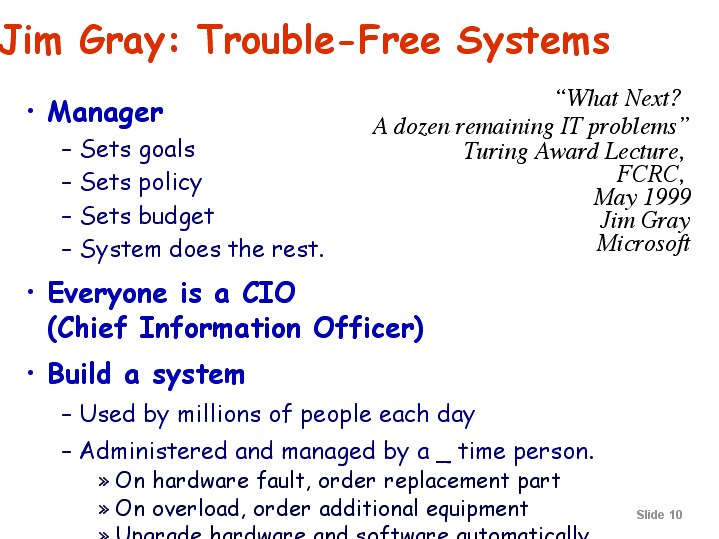Slide 10 of 61
Notes:
Server systems are more complex. They have some semi-custom applications, they have much heavier load, and often they provide the very services the PDAs, appliances, and desktops depend on. To some extent, the complexity has not disappeared, it has just moved.
But people who own servers are going to own many of them. They do not mind managing the server content, that is their business. But, they do not want to be systems management experts.
�So, server systems should be self managing. The human systems manager should set goals, polices and budget. The system should do the rest. It should distribute work among the servers, when new ones arrive, they should just add to the cluster when they are plugged in. When a server fails, its storage will have been replicated somewhere else, so the storage and computation can move to those new locations.
The operational test for this systems is that it serves millions of people each day, and yet it is managed by a fraction of a person who does all the administrative tasks. Currently, such a system would need 24-hour a day coverage by a substantial staff. With special expertise required for upgrades, maintenance, system growth, database administration, backups, network management, and the like.















